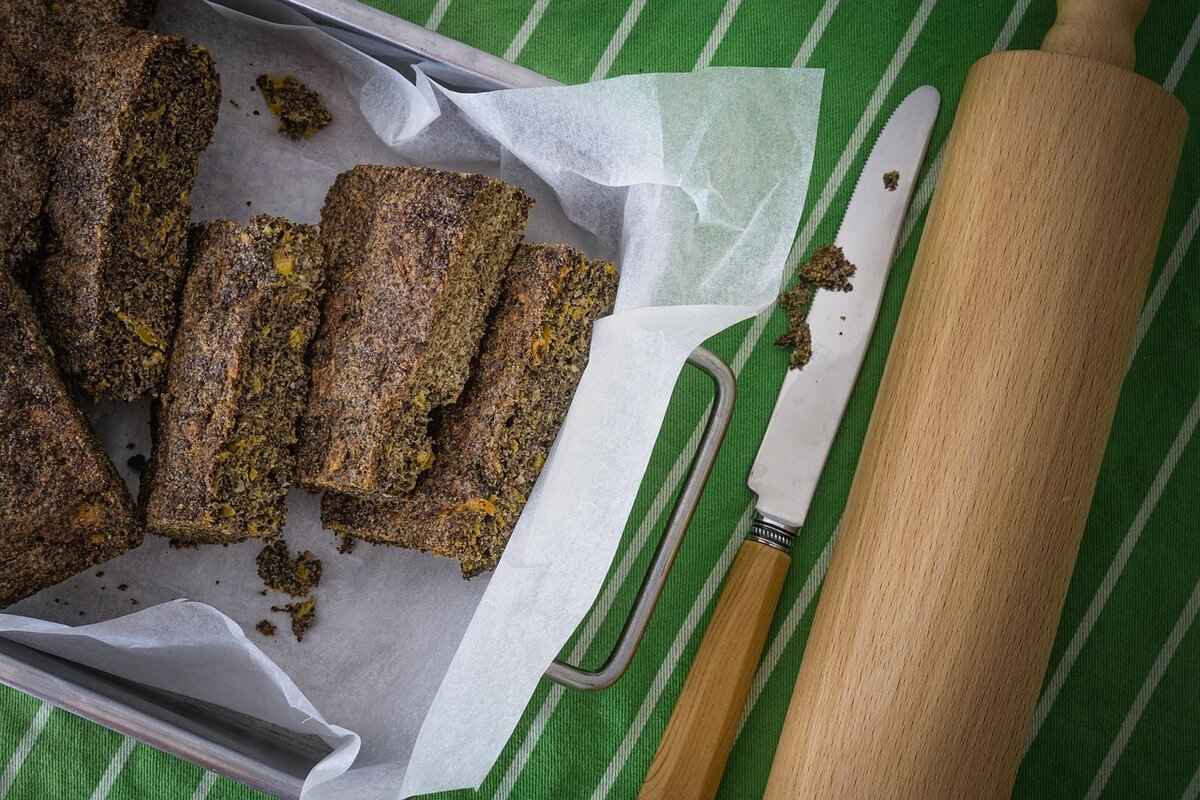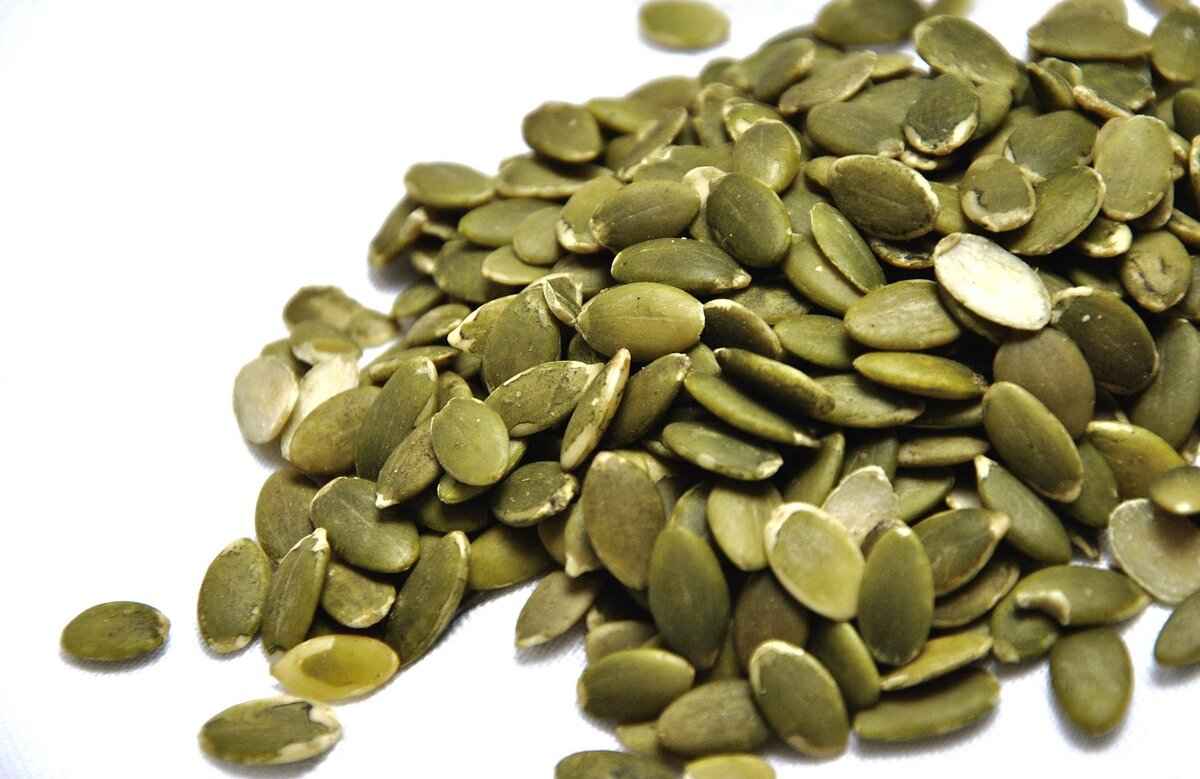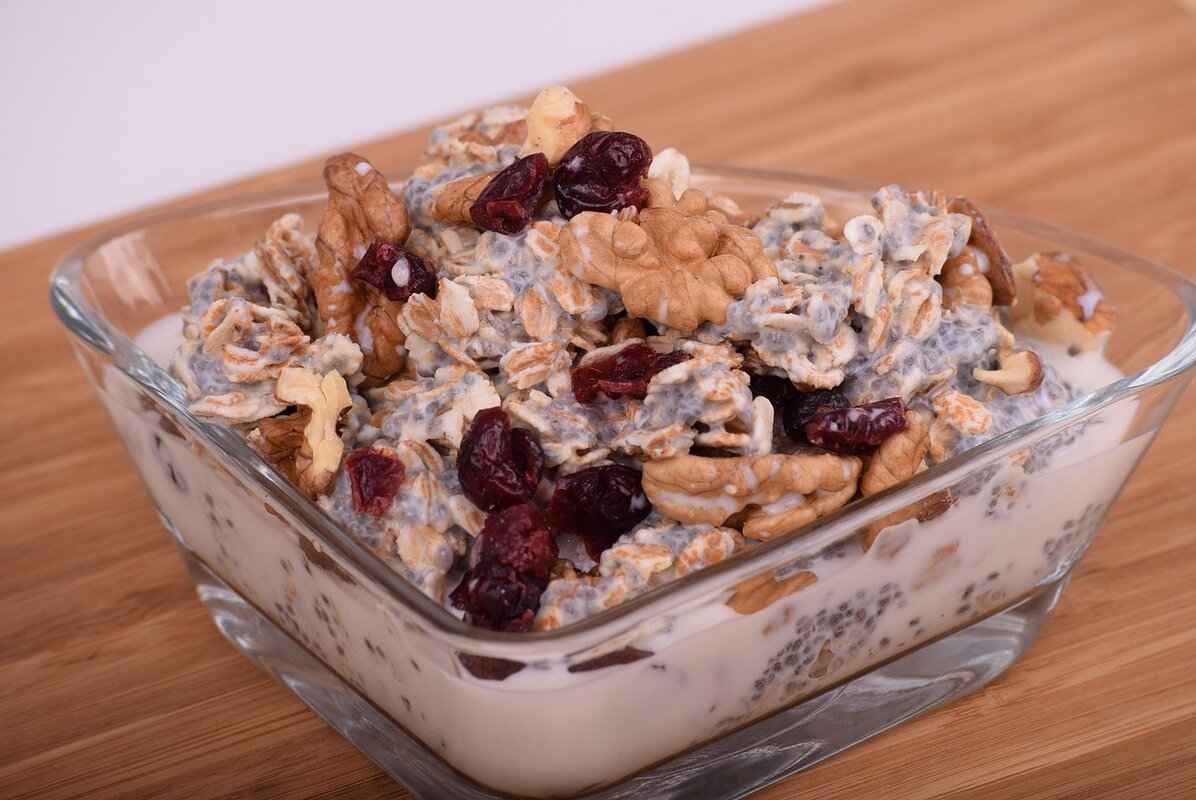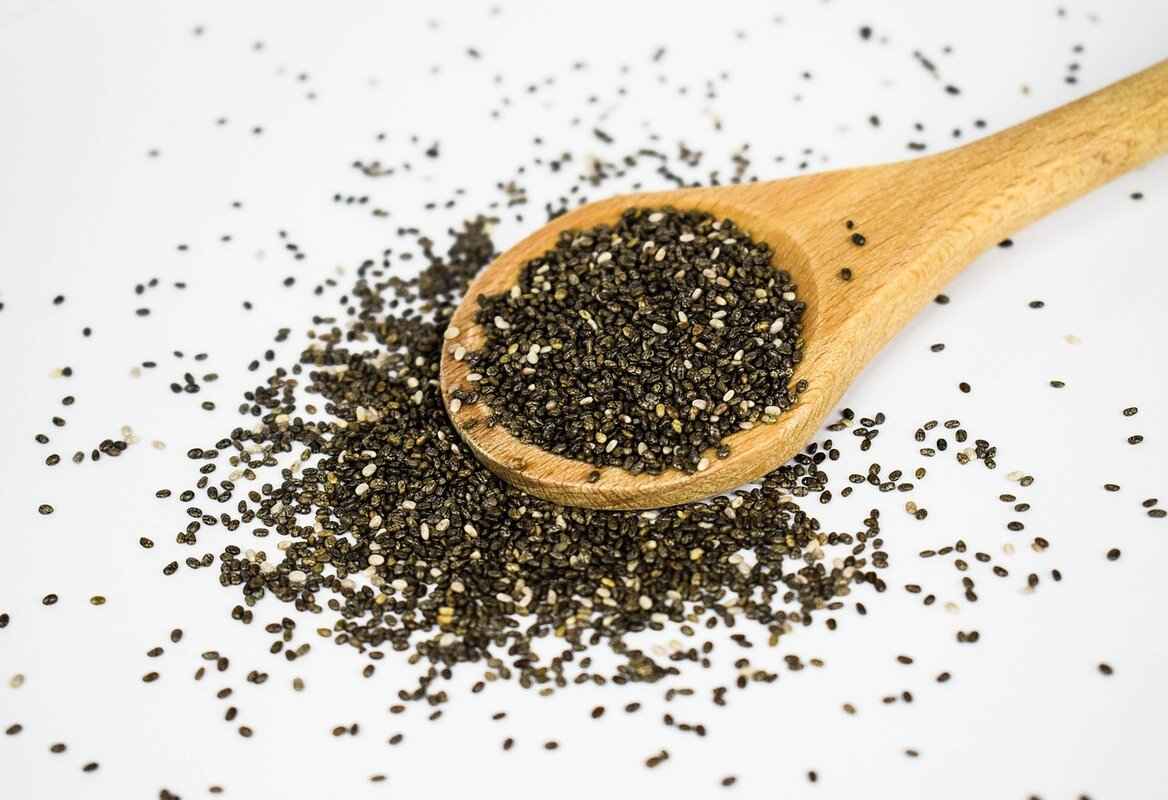Chia seeds and flax seeds are two of the most popular superfoods available today, known for their impressive nutritional profiles and health benefits. This article will compare these seeds in terms of their nutritional benefits, culinary uses, and potential health impacts, helping you make an informed dietary choice.
Chia seeds, derived from the Salvia hispanica plant, are tiny black or white seeds that have gained popularity due to their rich nutrient content. They are packed with fiber, omega-3 fatty acids, and essential vitamins and minerals. These seeds can absorb water, expanding to form a gel-like substance, which makes them a great addition to various dishes.
Flax seeds come from the flax plant and are highly regarded for their high levels of omega-3 fatty acids, lignans, and dietary fiber. These seeds are often ground to enhance nutrient absorption and are commonly used in health foods, smoothies, and baking.
When examining the nutritional content of chia and flax seeds, both offer unique benefits. Chia seeds contain more fiber per ounce, while flax seeds are richer in omega-3 fatty acids. Understanding these differences can guide your dietary decisions.
Both chia and flax seeds are excellent sources of dietary fiber. Chia seeds provide about 10 grams of fiber per ounce, while flax seeds offer around 8 grams. This high fiber content can aid in digestion and promote feelings of fullness, assisting in weight management.
Omega-3 fatty acids are crucial for maintaining heart health. Flax seeds contain significantly higher levels of alpha-linolenic acid (ALA), a type of omega-3, compared to chia seeds. This makes flax seeds particularly beneficial for those looking to boost their omega-3 intake.
Chia seeds offer numerous health benefits, including improved digestion, heart health, and weight management. Their high antioxidant content also helps combat oxidative stress in the body.
The omega-3 fatty acids found in chia seeds support cardiovascular health by reducing inflammation and lowering blood pressure. Including chia seeds in your diet can contribute to overall heart health.
The soluble fiber in chia seeds absorbs water, expanding in your stomach and promoting a sense of fullness. This can be beneficial for those looking to manage their weight or reduce calorie intake.
Flax seeds are known for their anti-inflammatory properties and potential cancer-fighting effects. They are also rich in lignans, which may offer hormonal balance benefits.
Flax seeds are effective in promoting digestive health due to their high fiber content, which can help alleviate constipation and improve gut health.
The lignans in flax seeds can help balance hormones, making them especially relevant for women’s health. These compounds may assist in reducing symptoms associated with menopause.
Incorporating chia and flax seeds into your meals can be simple and delicious. Here are some practical tips:
- Chia Seed Recipes: Add chia seeds to smoothies, yogurt, or oatmeal for a nutritious boost. You can also make chia pudding by soaking them in almond milk.
- Flax Seed Recipes: Ground flax seeds can be sprinkled on cereals, incorporated into baked goods, or blended into smoothies for added nutrition.
Both chia and flax seeds are versatile ingredients that can enhance your meals while providing significant health benefits. By understanding their unique properties, you can make informed choices that align with your dietary goals.

What Are Chia Seeds?
Chia seeds are small, yet incredibly powerful seeds derived from the Salvia hispanica plant, which is native to Central America. These seeds have gained immense popularity in recent years, not only for their unique texture but also for their remarkable health benefits. Packed with nutrients, chia seeds are often hailed as a superfood and are a fantastic addition to a balanced diet.
One of the standout features of chia seeds is their high fiber content. A single ounce (about 28 grams) of chia seeds contains approximately 11 grams of dietary fiber, which is essential for maintaining a healthy digestive system. This fiber helps promote feelings of fullness, which can aid in weight management. When consumed, chia seeds can absorb up to 12 times their weight in water, forming a gel-like substance that can help slow digestion and prolong the feeling of satiety.
In addition to fiber, chia seeds are an excellent source of omega-3 fatty acids. These healthy fats are crucial for heart health and have been linked to reducing inflammation in the body. Chia seeds contain alpha-linolenic acid (ALA), a type of omega-3 that is particularly beneficial for those following a plant-based diet. Regular consumption of chia seeds can contribute to improved cardiovascular health, making them a wise choice for heart-conscious individuals.
Chia seeds are also rich in various vitamins and minerals. They provide essential nutrients such as calcium, magnesium, phosphorus, and manganese, all of which play vital roles in maintaining overall health. For instance, calcium is crucial for strong bones, while magnesium supports muscle function and energy production. Incorporating chia seeds into your diet can help ensure you meet your daily nutritional needs.
Another noteworthy aspect of chia seeds is their versatility in culinary applications. They can be easily added to a variety of dishes, including smoothies, oatmeal, and baked goods. Their neutral flavor allows them to blend seamlessly into both sweet and savory recipes. Additionally, chia seeds can be used as a thickening agent in recipes like puddings or as an egg substitute in vegan baking, making them an excellent choice for various dietary preferences.
In summary, chia seeds are not just tiny seeds; they are a powerhouse of nutrition. Their impressive fiber content, omega-3 fatty acids, and rich array of vitamins and minerals make them a valuable addition to any diet. Whether you’re looking to boost your heart health, manage your weight, or simply enhance your overall nutrition, incorporating chia seeds into your meals can provide numerous health benefits.

What Are Flax Seeds?
Flax seeds, derived from the flax plant (Linum usitatissimum), have gained significant attention in the health and wellness community. These tiny seeds are not only nutritious but also versatile, making them a popular choice among health-conscious individuals. They are often celebrated for their impressive nutritional profile, which includes a rich supply of omega-3 fatty acids, lignans, and dietary fiber.
Flax seeds are particularly renowned for their high levels of alpha-linolenic acid (ALA), a type of omega-3 fatty acid that plays a crucial role in heart health. Regular consumption of flax seeds can contribute to a healthier cardiovascular system by reducing inflammation and lowering cholesterol levels. Additionally, the presence of lignans, which are phytoestrogens, may offer protective benefits against certain types of cancer, particularly breast and prostate cancers.
In terms of dietary fiber, flax seeds are an excellent source, providing both soluble and insoluble fiber. This combination aids in promoting digestive health, helping to regulate bowel movements and prevent constipation. Furthermore, the fiber content can enhance feelings of fullness, making flax seeds a valuable addition to weight management strategies.
- Omega-3 Fatty Acids: Essential for heart health, flax seeds are one of the richest plant-based sources of omega-3s.
- Lignans: These compounds have antioxidant properties and may help balance hormones.
- Dietary Fiber: Supports digestive health and aids in weight management.
Flax seeds can be consumed in various forms, including whole seeds, ground seeds, or as flaxseed oil. Ground flax seeds are often preferred as they are easier for the body to digest, allowing for better nutrient absorption. Incorporating flax seeds into your diet can be simple; they can be added to smoothies, oatmeal, baked goods, or even sprinkled on salads for an added crunch.
It’s important to note that while flax seeds offer numerous health benefits, moderation is key. Consuming them in excessive amounts may lead to digestive discomfort due to their high fiber content. A typical serving size is about one to two tablespoons per day.
In conclusion, flax seeds are a powerhouse of nutrition that can enhance your overall health. Their rich content of omega-3 fatty acids, lignans, and dietary fiber makes them a valuable addition to any diet. Whether you choose to add them to your smoothies or use them in baking, incorporating flax seeds can provide significant health benefits.

Comparative Nutritional Profiles
When it comes to enhancing our diets with nutritious seeds, chia seeds and flax seeds are two popular choices that often come to mind. Both seeds are packed with essential nutrients, but they have distinct profiles that can impact your health in various ways. Understanding their nutritional content is crucial for making informed dietary choices.
Chia seeds are tiny black or white seeds derived from the Salvia hispanica plant. They are an excellent source of fiber, providing about 10 grams per ounce, which aids in digestion and promotes a feeling of fullness. Additionally, chia seeds are rich in omega-3 fatty acids, particularly alpha-linolenic acid (ALA), which supports heart health. They also contain various vitamins and minerals, including calcium, magnesium, and phosphorus.
Flax seeds, on the other hand, come from the flax plant and are renowned for their high content of lignans, a type of antioxidant. They also provide a significant amount of omega-3 fatty acids, similar to chia seeds, but in a different form. Flax seeds contain about 6 grams of fiber per ounce, which also contributes to digestive health. Moreover, they are a good source of protein, making them a valuable addition to vegetarian diets.
| Nutrient | Chia Seeds (1 oz) | Flax Seeds (1 oz) |
|---|---|---|
| Calories | 138 | 150 |
| Protein | 4.7g | 5.2g |
| Fiber | 10g | 6g |
| Omega-3 Fatty Acids | 5g (ALA) | 6.3g (ALA) |
| Lignans | 0.3mg | 85.5mg |
While both seeds are excellent sources of nutrients, the differences in their nutritional profiles can help you decide which one to incorporate into your diet. Chia seeds are superior in fiber content, making them ideal for those looking to enhance digestion and satiety. Conversely, flax seeds are richer in lignans, offering potential hormonal balance benefits, particularly for women.
Incorporating chia and flax seeds into your meals is simple. Chia seeds can be added to smoothies, yogurt, or made into puddings. Flax seeds can be ground and sprinkled over cereals, mixed into baked goods, or blended into smoothies. Both seeds provide versatility and are easy to include in a variety of dishes.
Ultimately, the choice between chia and flax seeds may come down to personal preference and specific health goals. By understanding their unique nutritional profiles, you can make choices that align with your dietary needs and enhance your overall well-being.
Fiber Content: Which Is Higher?
When it comes to dietary fiber, both chia seeds and flax seeds are considered superfoods, but they each offer unique benefits that can influence your choice. Understanding the differences in their fiber content can help you make a more informed decision about which seed to incorporate into your diet.
Chia seeds are known for their remarkable ability to absorb liquid, expanding up to 12 times their weight when soaked. This unique property not only enhances their fiber content but also contributes to a feeling of fullness, making them an excellent choice for those looking to manage their weight. In a typical serving of chia seeds (about 28 grams), you can find approximately 10 grams of dietary fiber, which is about 40% of the recommended daily intake for adults.
On the other hand, flax seeds also boast impressive fiber content, but they differ in composition. A similar serving size of flax seeds provides around 8 grams of dietary fiber, which is still substantial but slightly less than that found in chia seeds. Flax seeds contain both soluble and insoluble fiber, which plays a crucial role in digestive health by promoting regularity and preventing constipation.
| Seed Type | Serving Size (28g) | Dietary Fiber Content | Type of Fiber |
|---|---|---|---|
| Chia Seeds | 28g | 10g | Soluble & Insoluble |
| Flax Seeds | 28g | 8g | Soluble & Insoluble |
Both seeds are rich in soluble fiber, which helps to lower cholesterol levels and stabilize blood sugar. The soluble fiber in chia seeds forms a gel-like substance in the stomach, which can slow digestion and prolong the feeling of fullness. This makes them a fantastic addition to smoothies, yogurt, or even as a thickening agent in soups.
Flax seeds, while slightly lower in fiber, are particularly rich in lignans, a type of phytoestrogen that may provide additional health benefits, including hormone balance and potential cancer-fighting properties. The combination of fiber and lignans can support digestive health and overall well-being.
In conclusion, while both chia and flax seeds are excellent sources of dietary fiber, chia seeds have a higher fiber content per serving. However, flax seeds offer unique benefits that can enhance your diet in different ways. Depending on your specific health goals—whether it’s weight management, digestive health, or hormonal balance—choosing the right seed can make a significant impact on your overall nutrition.
Omega-3 Fatty Acids: A Key Component
Omega-3 fatty acids play a crucial role in maintaining heart health and overall well-being. These essential fats are not produced by the body and must be obtained through diet, making it important to choose the right sources. This section delves into the omega-3 content of chia seeds and flax seeds, two popular superfoods renowned for their health benefits.
Omega-3 fatty acids are a type of polyunsaturated fat that are vital for various bodily functions, including heart health, brain function, and inflammation regulation. The three main types of omega-3s are:
- ALA (Alpha-linolenic acid) – primarily found in plant sources.
- EPA (Eicosapentaenoic acid) – mainly found in fish.
- DHA (Docosahexaenoic acid) – also found in fish and algae.
Both chia and flax seeds are excellent sources of ALA, making them beneficial for those following a plant-based diet. However, their omega-3 content varies:
| Seed Type | Omega-3 Content (per 100g) |
|---|---|
| Chia Seeds | 17g ALA |
| Flax Seeds | 22g ALA |
As indicated in the table, flax seeds contain a higher amount of ALA compared to chia seeds. This difference can influence your choice depending on your dietary needs.
Incorporating omega-3 fatty acids into your diet can yield numerous health benefits:
- Heart Health: Omega-3s have been shown to lower triglyceride levels, reduce blood pressure, and decrease the risk of heart disease.
- Brain Function: Omega-3 fatty acids are essential for brain health, potentially improving memory and cognitive function.
- Anti-Inflammatory Properties: Omega-3s can help reduce inflammation in the body, which is linked to various chronic diseases.
To ensure you are getting the maximum benefits from these seeds, consider the following tips:
- Soaking Chia Seeds: Soaking chia seeds in water or milk can enhance their digestibility and nutrient absorption.
- Grinding Flax Seeds: Grinding flax seeds can help release their nutrients, making it easier for your body to absorb the omega-3 fatty acids.
- Incorporating into Meals: Add chia seeds to smoothies, oatmeal, or yogurt, and sprinkle ground flax seeds on salads or baked goods.
In summary, both chia and flax seeds are excellent sources of omega-3 fatty acids, each with unique benefits. By understanding their nutritional profiles and incorporating them into your diet, you can enhance your heart health and overall wellness.

Health Benefits of Chia Seeds
Chia seeds have gained immense popularity in the health and wellness community due to their remarkable nutritional profile and health benefits. These tiny seeds, which originate from the Salvia hispanica plant, are packed with essential nutrients that contribute to overall well-being. This article will dive deep into the various health benefits of chia seeds, providing insights on how they can play a significant role in your diet.
Chia seeds offer a plethora of health benefits, making them a valuable addition to any diet. Here are some of the most notable advantages:
- Improved Digestion: Chia seeds are an excellent source of dietary fiber. Just two tablespoons of chia seeds contain about 10 grams of fiber, which is essential for maintaining a healthy digestive system. The fiber helps to regulate bowel movements and prevent constipation, promoting overall gut health.
- Heart Health: Rich in omega-3 fatty acids, chia seeds can contribute to heart health by reducing inflammation and lowering cholesterol levels. These healthy fats are vital for maintaining a healthy heart and can help reduce the risk of heart disease.
- Weight Management: The high fiber content in chia seeds also aids in weight management. When consumed, chia seeds expand in the stomach, promoting a feeling of fullness and reducing overall calorie intake. This can be particularly beneficial for those looking to lose or maintain weight.
- Bone Health: Chia seeds are a great source of calcium, magnesium, and phosphorus, all of which are essential for maintaining strong bones. Including chia seeds in your diet can help support bone density and overall skeletal health.
- Energy Boost: The combination of protein, fiber, and healthy fats in chia seeds provides a sustained energy release. This makes them an excellent snack option for athletes and anyone needing a quick energy boost throughout the day.
Incorporating chia seeds into your daily meals can be both easy and delicious. Here are some practical tips:
- Chia Pudding: Mix chia seeds with your favorite milk or yogurt and let them sit overnight to create a creamy pudding. Add fruits and nuts for extra flavor and nutrition.
- Smoothies: Blend chia seeds into your smoothies for a nutrient boost. They can add thickness and enhance the texture.
- Baking: Substitute chia seeds for eggs in baking recipes by mixing them with water to create a gel-like consistency. This is a great option for vegan baking.
- Salads and Dressings: Sprinkle chia seeds over salads or mix them into homemade dressings for added crunch and nutrition.
While chia seeds are generally safe for most people, it is essential to consume them in moderation. Due to their high fiber content, consuming excessive amounts can lead to digestive discomfort. Always ensure you are drinking plenty of water when incorporating chia seeds into your diet to aid in digestion.
In summary, chia seeds are a powerhouse of nutrition that can enhance your health in various ways. From improving digestion to supporting heart health and aiding in weight management, these tiny seeds offer significant benefits. By incorporating chia seeds into your meals, you can enjoy their numerous advantages while adding variety to your diet.
Chia Seeds and Heart Health
Chia seeds have gained significant attention in recent years due to their impressive nutritional profile, particularly their high content of omega-3 fatty acids. These essential fats play a crucial role in maintaining cardiovascular health. Understanding how chia seeds contribute to heart health can guide your dietary choices effectively.
Omega-3 fatty acids are a type of polyunsaturated fat that is vital for various bodily functions. They are known to reduce inflammation, lower blood pressure, and improve cholesterol levels. Regular consumption of omega-3s can significantly decrease the risk of heart disease, making them essential for anyone looking to maintain a healthy heart.
Chia seeds are one of the richest plant-based sources of omega-3 fatty acids, particularly in the form of alpha-linolenic acid (ALA). Just two tablespoons of chia seeds provide about 5,000 milligrams of ALA, which is more than the average daily recommended intake. This high concentration makes chia seeds a fantastic option for vegetarians and vegans seeking to boost their omega-3 intake.
- Reducing Inflammation: Chronic inflammation is a significant risk factor for heart disease. The omega-3s in chia seeds help reduce inflammation in the body, thereby lowering the risk of heart-related issues.
- Improving Cholesterol Levels: Studies have shown that omega-3 fatty acids can help lower LDL (bad) cholesterol while raising HDL (good) cholesterol. This balance is crucial for maintaining heart health.
- Regulating Blood Pressure: Regular consumption of omega-3s has been linked to lower blood pressure levels, further reducing the risk of developing heart disease.
Adding chia seeds to your meals is simple and versatile. Here are some ideas:
- Smoothies: Blend chia seeds into your morning smoothie for an extra nutritional boost.
- Chia Pudding: Mix chia seeds with almond milk and let them sit overnight for a delicious and healthy pudding.
- Salads: Sprinkle chia seeds on salads for added crunch and nutrition.
Research indicates that including chia seeds in your diet can lead to significant improvements in heart health markers. A study published in the American Journal of Clinical Nutrition found that participants who consumed chia seeds experienced reductions in blood pressure and improvements in cholesterol levels.
In summary, chia seeds are a powerhouse of omega-3 fatty acids that can greatly benefit your heart health. By incorporating these tiny seeds into your diet, you can take proactive steps toward maintaining a healthy cardiovascular system. Whether you choose to add them to smoothies, salads, or puddings, the health benefits are undeniable, making chia seeds a valuable addition to any diet.
Chia Seeds for Weight Management
When it comes to effective weight management strategies, chia seeds have gained significant attention due to their impressive nutritional profile. These tiny seeds, packed with fiber, can play a crucial role in promoting feelings of fullness, which is essential for controlling appetite and reducing overall calorie intake.
One of the primary reasons chia seeds are effective for weight management is their remarkable fiber content. With approximately 10 grams of fiber per ounce, chia seeds can absorb up to 12 times their weight in water. This property allows them to expand in the stomach, creating a gel-like substance that can significantly increase satiety. As a result, incorporating chia seeds into your meals can help you feel fuller for longer, thereby reducing the likelihood of overeating.
Moreover, the soluble fiber found in chia seeds aids in slowing down digestion. By doing so, it helps maintain steady blood sugar levels, preventing the spikes and crashes that can lead to cravings and unhealthy snacking. This stabilization of blood sugar is particularly beneficial for individuals looking to manage their weight effectively.
In addition to their fiber content, chia seeds are also a source of healthy fats, particularly omega-3 fatty acids. These fats not only support heart health but also contribute to a feeling of fullness. Including healthy fats in your diet can be a strategic approach to weight management, as they help satisfy hunger and reduce the temptation to indulge in high-calorie, low-nutrient foods.
Incorporating chia seeds into your daily routine can be simple and versatile. Here are a few practical ways to add chia seeds to your diet:
- Chia Pudding: Mix chia seeds with your choice of milk or yogurt and let them soak overnight. Add fruits, nuts, or sweeteners for a nutritious breakfast or snack.
- Smoothies: Blend chia seeds into your favorite smoothie for an added fiber boost without altering the flavor.
- Baking: Substitute a portion of flour in your baking recipes with ground chia seeds to enhance the nutritional value of your baked goods.
- Salads: Sprinkle chia seeds on salads for a crunchy texture and additional nutrients.
While chia seeds can be a valuable addition to a weight management plan, it’s essential to combine them with a balanced diet and regular physical activity. They should not be viewed as a magic solution but rather as a component of a holistic approach to health and wellness.
In conclusion, the high fiber content of chia seeds, along with their ability to promote satiety and stabilize blood sugar levels, makes them an excellent choice for those looking to manage their weight effectively. By incorporating chia seeds into your meals, you can harness their benefits and support your weight loss journey in a delicious and nutritious way.

Health Benefits of Flax Seeds
Flax seeds, derived from the flax plant, are small but mighty when it comes to health benefits. Packed with essential nutrients, they have gained popularity as a superfood in recent years. This section will explore the numerous health advantages of flax seeds, emphasizing their anti-inflammatory properties and potential cancer-fighting effects.
Flax seeds are rich in omega-3 fatty acids, particularly alpha-linolenic acid (ALA), which is known for its anti-inflammatory properties. These fatty acids play a crucial role in reducing inflammation throughout the body, which is linked to various chronic diseases, including heart disease and arthritis.
Research suggests that flax seeds may have potential cancer-fighting effects. They are an excellent source of lignans, which are phytoestrogens that may help regulate hormonal balance and reduce the risk of hormone-related cancers, such as breast and prostate cancer. Studies indicate that incorporating flax seeds into your diet may lower the risk of developing these types of cancers.
The high fiber content in flax seeds makes them beneficial for digestive health. They contain both soluble and insoluble fiber, which aids in maintaining regular bowel movements and preventing constipation. Additionally, fiber promotes a healthy gut microbiome, contributing to overall digestive well-being.
Consuming flax seeds can significantly support heart health. The omega-3 fatty acids in flax seeds help lower blood pressure, reduce cholesterol levels, and decrease the risk of heart disease. Furthermore, the presence of lignans and fiber also contributes to improved cardiovascular health by promoting healthy lipid profiles.
For women, flax seeds can be particularly beneficial in maintaining hormonal balance. The lignans found in flax seeds may help alleviate symptoms associated with menopause and premenstrual syndrome (PMS). By modulating estrogen levels, flax seeds can help reduce symptoms such as hot flashes and mood swings.
Incorporating flax seeds into your daily routine is easy and versatile. Here are some practical ways to enjoy their health benefits:
- Add ground flax seeds to your smoothies for a nutrient boost.
- Sprinkle flax seeds over salads or yogurt for added texture and flavor.
- Use flaxseed meal as a substitute for eggs in baking, particularly for vegan recipes.
- Mix flax seeds into oatmeal or cereal for a hearty breakfast.
While flax seeds offer numerous health benefits, it is important to consume them in moderation. Excessive intake may lead to digestive issues, such as bloating or gas, due to their high fiber content. Additionally, those on blood-thinning medications should consult a healthcare provider before adding flax seeds to their diet, as they may enhance the effects of these medications.
In summary, flax seeds are a powerhouse of nutrients that can significantly contribute to overall health. Their anti-inflammatory properties, cancer-fighting potential, and benefits for heart and digestive health make them a valuable addition to a balanced diet. With numerous ways to incorporate them into meals, flax seeds are not only healthy but also versatile and delicious.
Flax Seeds and Digestive Health
Flax seeds, derived from the flax plant, are not only a nutritious addition to your diet but also play a significant role in promoting digestive health. Their high fiber content is a key factor in alleviating various digestive issues, making them a popular choice for those seeking to enhance their gut wellness.
One of the most notable benefits of flax seeds is their rich composition of dietary fiber. A single tablespoon of flax seeds contains about 2.8 grams of fiber, which is essential for maintaining a healthy digestive system. Fiber aids in regulating bowel movements and can help prevent constipation, ensuring that your digestive tract functions smoothly.
- Promoting Regularity: The soluble fiber in flax seeds absorbs water and forms a gel-like substance in the gut, which can help to soften stools and promote regular bowel movements.
- Preventing Constipation: By adding bulk to your stool, flax seeds can help to prevent constipation, making it easier to pass waste.
- Supporting Gut Health: The fiber in flax seeds acts as a prebiotic, feeding the beneficial bacteria in your gut. This can enhance gut flora balance, which is crucial for overall digestive health.
For individuals suffering from irritable bowel syndrome (IBS)
Integrating flax seeds into your daily meals is simple and versatile. Here are a few practical tips: Flax seeds offer a multitude of benefits for digestive health, primarily due to their high fiber content and anti-inflammatory properties. By incorporating these tiny seeds into your diet, you can support your digestive system and promote overall gut health. Whether you choose to sprinkle them on your meals or blend them into smoothies, flax seeds are a simple yet effective way to enhance your dietary fiber intake.
Flax Seeds and Hormonal Balance
Flax seeds have garnered attention in the health community for their impressive nutritional profile and potential health benefits. One of the most significant advantages of flax seeds lies in their ability to support hormonal balance, particularly for women. This article explores how flax seeds can play a crucial role in maintaining hormonal health.
Flax seeds are an excellent source of lignans, a type of phytoestrogen. Phytoestrogens are plant compounds that mimic estrogen in the body, which can be beneficial for women experiencing hormonal fluctuations, especially during menopause. By consuming flax seeds, women may experience a natural way to help balance their estrogen levels.
The consumption of flax seeds may help in regulating hormonal levels due to their lignan content. Research has shown that lignans can modulate estrogen metabolism, potentially reducing the risk of hormone-related issues such as breast cancer. By promoting a healthier balance of hormones, flax seeds can be a valuable addition to a woman’s diet.
For many women, hormonal imbalances can lead to uncomfortable symptoms during their menstrual cycle. Incorporating flax seeds into the diet may help alleviate these symptoms. The lignans in flax seeds can help reduce symptoms of PMS by promoting a more stable hormonal environment. This can lead to fewer mood swings, reduced bloating, and less discomfort.
During menopause, women often experience a decline in estrogen levels, which can lead to various symptoms such as hot flashes, night sweats, and mood changes. Flax seeds can be particularly beneficial during this stage of life. The phytoestrogens in flax seeds may help to mitigate menopausal symptoms, providing a natural alternative to hormone replacement therapies.
Incorporating flax seeds into your daily routine is simple and versatile. Here are some practical tips:
- Add to Smoothies: Blend a tablespoon of ground flax seeds into your morning smoothie for an easy nutritional boost.
- Sprinkle on Salads: Use whole or ground flax seeds as a topping for salads to enhance texture and nutrition.
- Baking: Substitute a portion of flour in your baking recipes with ground flax seeds to increase fiber content.
- Flaxseed Oil: Use flaxseed oil in salad dressings or as a finishing oil for cooked dishes to reap the benefits without the need for grinding.
While flax seeds offer numerous health benefits, it is essential to consume them in moderation. Too much flax seed can lead to digestive issues due to their high fiber content. It is recommended to start with a small amount and gradually increase intake. Additionally, individuals with hormone-sensitive conditions should consult a healthcare professional before making flax seeds a regular part of their diet.
In summary, flax seeds are a powerful ally in promoting hormonal balance for women. Their rich content of lignans and omega-3 fatty acids can support overall health and well-being, making them a valuable addition to a balanced diet.

How to Incorporate Chia and Flax Seeds into Your Diet
Incorporating chia and flax seeds into your meals can be both easy and delicious. These tiny powerhouses are not only packed with nutrients but also versatile enough to enhance a variety of dishes. Below are some practical tips to help you seamlessly add these seeds to your diet.
Both chia and flax seeds are rich in essential nutrients, including omega-3 fatty acids, fiber, and antioxidants. Adding them to your meals can improve your overall health and well-being. But how can you do this without altering your favorite recipes?
- Chia Pudding: Combine 3 tablespoons of chia seeds with 1 cup of almond milk. Let it sit for a few hours or overnight in the refrigerator. Add fruits, nuts, or honey for flavor.
- Smoothies: Blend 1 tablespoon of chia seeds into your morning smoothie for added texture and nutrition.
- Baking: Substitute 1/4 cup of flour with chia seeds in your favorite muffin or bread recipes to boost fiber content.
- Flaxseed Meal: Grind whole flax seeds to make flaxseed meal. Use this in pancakes or as a thickening agent in soups.
- In Baked Goods: Add 2 tablespoons of ground flax seeds to your cookie or brownie batter for an extra nutritional boost.
- Sprinkle on Salads: Top your salads with whole flax seeds for a nutty flavor and crunchy texture.
Combining both chia and flax seeds can provide a broader range of nutrients. Try mixing 1 tablespoon of each into your morning oatmeal or yogurt. This not only enhances the nutritional profile but also adds a delightful crunch.
To maintain their freshness and nutritional value, store chia and flax seeds in an airtight container in a cool, dry place. Ground flax seeds should be refrigerated to prevent them from going rancid.
Incorporating chia and flax seeds into your meals can be simple and enjoyable. With a variety of recipes and methods to choose from, you can easily enhance your diet with these nutritious seeds. Whether you prefer them in smoothies, baked goods, or salads, the possibilities are endless. Start experimenting today and enjoy the health benefits these seeds have to offer!
Recipes Featuring Chia Seeds
Chia seeds are not only a powerhouse of nutrients but also a versatile ingredient that can elevate your culinary creations. Their unique ability to absorb liquid and form a gel-like consistency makes them an excellent addition to a variety of dishes. Here are some creative and delicious ways to incorporate chia seeds into your meals.
Chia seed pudding is a popular breakfast or snack option that is both nutritious and satisfying. To make this simple dish, combine 1/4 cup of chia seeds with 1 cup of your favorite milk (dairy or plant-based) and a sweetener of your choice, such as honey or maple syrup. Stir well and let it sit in the refrigerator for at least 2 hours or overnight. The next day, top with fresh fruits, nuts, or granola for added flavor and texture.
Add a tablespoon of chia seeds to your favorite smoothie recipe for an extra nutritional punch. They blend seamlessly into fruit smoothies, providing a boost of fiber and omega-3 fatty acids without altering the taste. For a refreshing option, try a green smoothie with spinach, banana, almond milk, and a tablespoon of chia seeds.
Making your own jam with chia seeds is a fun and healthy alternative to store-bought options. Simply mash 2 cups of fresh or frozen fruit (such as strawberries or blueberries) and mix in 2 tablespoons of chia seeds and a sweetener if desired. Allow the mixture to sit for about 30 minutes until it thickens, then spread it on toast or use it as a topping for yogurt or desserts.
For a quick and easy snack, try making chia seed energy bites. Combine 1 cup of oats, 1/4 cup of nut butter, 1/4 cup of honey, and 2 tablespoons of chia seeds in a bowl. Mix until well combined, then form into small balls. Refrigerate for about 30 minutes to firm up. These bites are great for a pre-workout boost or a midday pick-me-up.
Chia seeds can also be used as a topping for various dishes. Sprinkle them over salads, oatmeal, or yogurt for added crunch and nutrition. Their subtle nutty flavor complements both sweet and savory dishes, making them a versatile ingredient to have on hand.
Incorporate chia seeds into your pancake batter for a nutritious twist on a breakfast classic. Add 2 tablespoons of chia seeds to your pancake mix along with the usual ingredients. The seeds will add texture and nutritional benefits, making your pancakes not only delicious but also healthy.
Incorporating chia seeds into your diet can be both easy and enjoyable. With these creative recipes, you can enhance your meals while reaping the numerous health benefits that chia seeds offer. Whether you prefer sweet or savory dishes, there is a way to include these tiny seeds in your daily routine.
Recipes Featuring Flax Seeds
Flax seeds are incredibly versatile and can enhance both the nutritional value and flavor of a variety of dishes. Here are some creative ways to incorporate flax seeds into your daily meals:
- Baked Goods: Flax seeds can be easily added to your favorite baked goods. Whether you’re making bread, muffins, or pancakes, consider substituting a portion of the flour with ground flax seeds. This not only boosts the fiber content but also adds a nutty flavor. For a simple recipe, mix 1/4 cup of ground flax seeds into your batter for every 2 cups of flour.
- Breakfast Cereals: Sprinkling flax seeds on your morning oatmeal or yogurt is a quick and easy way to increase your intake of omega-3 fatty acids. Try adding 1-2 tablespoons of whole or ground flax seeds to your bowl. They can also be mixed into granola for a crunchy texture.
- Smoothies: Flax seeds blend well into smoothies, providing a nutrient boost without altering the taste. Just add 1 tablespoon of ground flax seeds to your smoothie ingredients. This addition will not only enhance the texture but also contribute to a feeling of fullness.
- Salad Dressings: You can create a nutritious salad dressing by blending flax seeds with olive oil, vinegar, and your choice of seasonings. This dressing adds a unique flavor and is rich in healthy fats. A simple recipe includes 2 tablespoons of ground flax seeds, 1/4 cup olive oil, 2 tablespoons apple cider vinegar, salt, and pepper to taste.
- Energy Bars: Homemade energy bars are a fantastic way to incorporate flax seeds. Combine oats, nuts, honey, and ground flax seeds, then press the mixture into a pan and refrigerate until firm. Cut into bars for a healthy snack on the go.
- Soups and Stews: Add ground flax seeds to soups or stews as a thickening agent. They can help achieve a creamy texture while boosting the nutritional value. Use about 1-2 tablespoons per serving for optimal results.
Incorporating flax seeds into your diet is not only easy but also beneficial for your health. With their rich nutrient profile, they provide various health benefits, including improved digestive health and heart support. Experimenting with these ideas can make healthy eating enjoyable and delicious!
Frequently Asked Questions
- What is the main difference between chia seeds and flax seeds?
While both chia seeds and flax seeds are packed with nutrients, chia seeds are particularly known for their high fiber content and ability to absorb water, forming a gel-like substance. Flax seeds, on the other hand, are rich in lignans and have a slightly higher omega-3 fatty acid content.
- Can I use chia seeds and flax seeds interchangeably in recipes?
Yes, you can often substitute one for the other in recipes, but keep in mind their different textures and absorption properties. Chia seeds can thicken liquids, while flax seeds add a nutty flavor. Experimenting with both can lead to delicious results!
- Are there any side effects of consuming chia or flax seeds?
Generally, both seeds are safe for most people. However, consuming them in excessive amounts can lead to digestive issues due to their high fiber content. It’s always a good idea to start with small quantities and increase gradually.
- How should I store chia and flax seeds?
To maintain freshness, store both chia and flax seeds in a cool, dark place. Flax seeds are best kept in the refrigerator after being ground to prevent them from going rancid, while chia seeds can be stored at room temperature.
- Can I eat chia seeds raw?
Absolutely! Chia seeds can be eaten raw, added to smoothies, or sprinkled on yogurt. Just remember to drink plenty of water, as they absorb liquid and expand.














